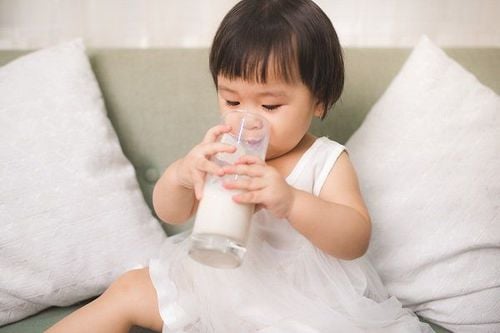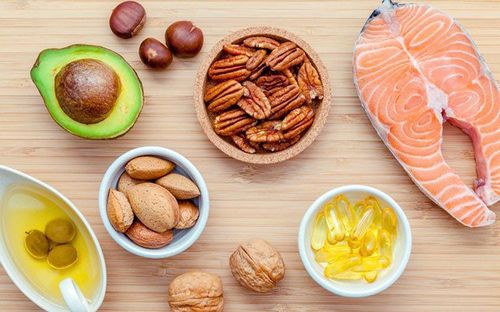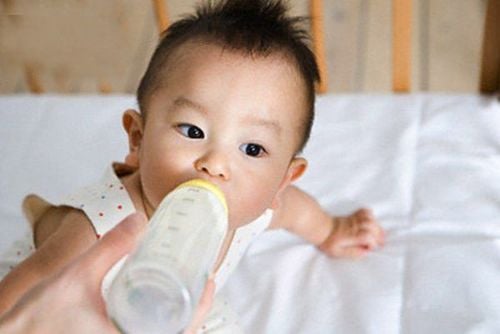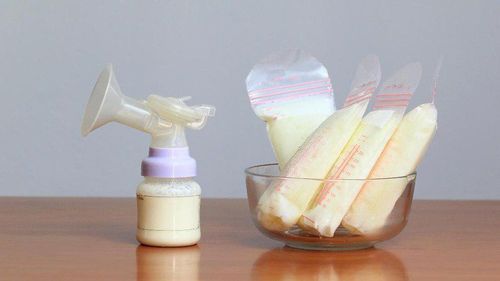1. When should children start consuming fresh milk?
Fresh milk contains many proteins, calcium, phosphorus, etc. These substances not only help children develop their brains but also help their muscles, bones, and teeth become strong. However, because of its high nutritional content, you should note that it should not be given to children under 12 months old. This is because their digestive system cannot metabolize the complex substances in fresh milk. Therefore, if it's not used properly, it will put pressure on the digestive system and affect the child's development.
In addition, children under 1 year old consuming a lot of fresh milk can overload their kidneys. If used for a long period, it will put the child at risk of high blood pressure and obesity in adulthood, and this rate is higher for families with a history of these diseases. Fresh milk also contains a large amount of lactose, which promotes the production of colon bacilli. The high protein content forces the kidneys to work continuously, leading to bloating, anorexia, dehydration, and the risk of kidney failure in children. In cases of excessive fresh milk consumption, the child may develop iron deficiency anemia in the future. Therefore, breastfeeding is the best choice for the baby at this time.
2. How many milliliters of milk per day is enough for a 1-year-old child?
When the child is 1 year old, mothers can add fresh milk to their daily diet. However, you should not give your baby too much; you should add it little by little to let the baby get used to it. On average, you can give your baby about 100-150 milliliters of milk per day.
Mothers should choose whole milk; only choose skimmed milk when required by a doctor, as the child's brain needs fat for development at this time. Ideally, parents should give their children alternating powdered milk and ready-to-drink milk, which helps the baby absorb iron, zinc, micronutrients, etc., better.

3. How many milliliters of milk per day is suitable for a 2-year-old child?
For children aged 2-3 years, on average, children need to be provided with 200-300 milliliters of milk per day. This is because the nutritional needs of children increase, and their digestive system can already absorb food at this time.
For children having signs of overweight or obesity, you should give them partially or fully skimmed milk. For children who are at a healthy weight, the use of sugary milk should be limited to reduce sugar intake and avoid overweight and obesity.
4. How many milliliters of milk per day is suitable for a 3-year-old child's developmental needs?
At this time, children's calcium needs are very high, which means that their daily milk needs also increase. On average, children need to drink 400-500 milliliters of milk per day. Children from 3 years old have a fully developed digestive system and can absorb food better, so a diverse diet should be combined to ensure that children have enough nutrients. You should prioritize the use of sterilized cow's milk, whole milk powder, soy milk, and yogurt.
Nutritional requirements at each stage of a child's development are different, so you need to pay attention to choosing a suitable diet for your children. The amount of milk that children consume must match the needs of each child. In addition, mothers should only give their children sterilized or pasteurized milk to ensure hygiene and safety for the child.
At each age, children will need to consume different amounts of milk to meet the nutritional requirements of the body. In addition to milk, parents should build a suitable diet for their children so that they can fully absorb nutrients for healthy development.
To arrange an appointment, please call HOTLINE or make your reservation directly HERE. You may also download the MyVinmec app to schedule appointments faster and manage your reservations more conveniently.








